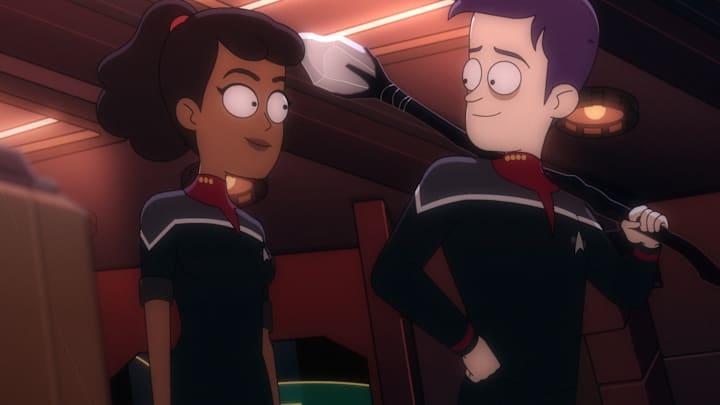Star Trek: Lower Decks is back for its fifth and final season. The series will wrap up this year and the hope is to send off the show with a big bang. Starting with the first episode of the fifth and final season, we get to see how the crew handles the multiverse.
Our own Brian T. Sullivan wrote up a review of the first episode back, highlighting the complexities that come with using multiple variants of the same characters. It's been a Star Trek staple to use this idea, going all the way back to the original series where we saw the Mirror Universe version of our favorite characters.
So it's not surprising that we're once again back and dealing with multiverse variants of Star Trek characters. It's also likely that this isn't the last time we see multiverse versions of characters this season. In a clip from the season five trailer, we see Garrett Wang back as Harry Kim, but this time dealing with a multitude of other Harry Kims.
This may be a huge arc that we're just starting, but we should be careful with how much Star Trek delves into the multiverse concept, as it can be a franchise killer. When you get too into the bushes about the multiverse variants and the concepts that come alongside seeing known characters act "differently" we end up losing forward momentum on the plot.
One only needs to really look at the MCU to see how the gimmick can wear thin pretty quickly. Heck, Star Trek to some degree thought the gimmick was pretty thin by the time Star Trek: Voyager came about, as they never did a Mirror Universe episode.
The gimmick can work in moderation, but unless you're a show like "Sliders", then the idea can be quickly overwhelming and even burdening to the franchise at large. It's like leaving every episode on a cliffhanger, only to have the payoff never being worth the wait. It may work at first but eventually, people are going to grow tired of it.
It's ok to dip your toes into the concept now and then, but when you start doing it too often, you quite literally start losing the plot. Star Trek is about exploring the stars and the complexities of humanity. The idea of a multiverse isn't even a real one. It's a theory, and for Star Trek to dive headfirst into that theory could be risky.
Especially if the only thing they intend on doing with it is finding new ways to bring back old characters, but this time with a twist.
